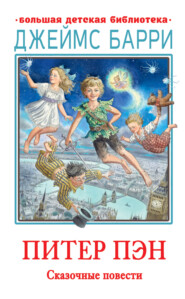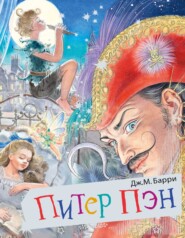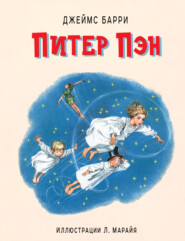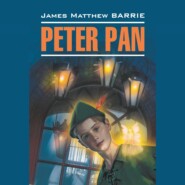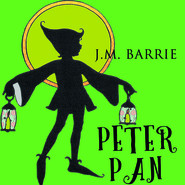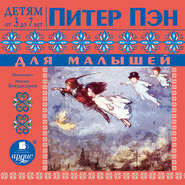По всем вопросам обращайтесь на: info@litportal.ru
(©) 2003-2025.
✖
When a Man's Single: A Tale of Literary Life
Автор
Год написания книги
2017
Настройки чтения
Размер шрифта
Высота строк
Поля
'He would not have remained so long,' said Rob, 'unless – unless – '
'I don't know,' Dick answered. 'You see it would all depend on Mary. She had a soft heart for Dowton the day she refused him, but I am not sure how she would take his reappearance on the scene again. If she resented it, I don't think the boldest baronet that breathes would venture to propose to Mary in her shell.'
'The colonel might press her?'
'Hardly, I think, to marry a man she does not care for. No, you do him an injustice. What my father would like to have is the power to compel her to care for Dowton. No doubt he would exercise that if it was his.'
'Miss Abinger says nothing – sends no messages – I mean, does she ever mention me when she writes?'
'Never a word,' said Dick. 'Don't look pale, man; it is a good sign. Women go by contraries, they say. Besides, Mary is not like Mahomet. If the mountain won't go to her, she will never come to the mountain.'
Rob started, and looked at his hat.
'You can't walk to Glen Quharity Lodge to-night,' said Dick, following Rob's eyes.
'Do you mean that I should go at all?'
'Why, well, you see, it is this awkward want of an income that spoils everything. Now, if you could persuade Rowbotham to give you a thousand a year, that might have its influence on my father.'
'I told you,' exclaimed Rob; 'no, of course I did not. I joined the staff of the Wire to-day at £800.'
'Your hand, young man,' said Dick, very nearly becoming excited. 'Then that is all right. On the Press every one with a good income can add two hundred a year to it. It is only those who need the two hundred that cannot get it.'
'You think I should go north?' said Rob, with the whistle of the train already in his ears.
'Ah, it is not my affair,' answered Dick; 'I have done my duty. I promised to give Dowton a fair chance, and he has had it. I don't know what use he has made of it, remember. You have overlooked my share in this business, and I retire now.'
'You are against me still, Abinger.'
'No, Angus, on my word I am not. You are as good a man as Dowton, and if Mary thinks you better – '
Dick shrugged his shoulders to signify that he had freed them of a load of prejudice.
'But does she?' said Rob.
'You will have to ask herself,' replied Dick.
'Yes; but when?'
'She will probably be up in town next season.'
'Next season,' exclaimed Rob; 'as well say next century.'
'Well, if that is too long to wait, suppose you come to Dome Castle with me at Christmas?'
Rob pushed the invitation from him contemptuously.
'There is no reason,' he said, looking at Dick defiantly, 'why I should not go north to-night.'
'It would be a little hurried, would it not?' Dick said to his pipe.
'No,' Rob answered, with a happy inspiration. 'I meant to go to Thrums just now, for a few days at any rate. Rowbotham does not need me until Friday.'
Rob looked up and saw Dick's mouth twitching. He tried to stare Mary's brother out of countenance, but could not do it.
Night probably came on that Tuesday as usual, for Nature is as much as man a slave to habit, but it was not required to darken London. If all the clocks and watches had broken their mainsprings no one could have told whether it was at noon or midnight that Rob left for Scotland. It would have been equally impossible to say from his face whether he was off to a marriage or a funeral. He did not know himself.
'This human nature is a curious thing,' thought Dick, as he returned to his rooms. 'Here are two of us in misery, the one because he fears he is not going to be married, and the other because he knows he is.'
He stretched himself out on two chairs.
'Neither of us, of course, is really miserable. Angus is not, for he is in love; and I am not, for – ' He paused, and looked at his pipe.
'No, I am not miserable; how could a man be miserable who has two chairs to lie upon, and a tobacco jar at his elbow? I fancy, though, that I am just saved from misery by lack of sentiment.
'Curious to remember that I was once sentimental with the best of them. This is the Richard who sat up all night writing poems to Nell's eyebrows. Ah, poor Nell!
'I wonder, is it my fault that my passion burned itself out in one little crackle? With most men, if the books tell true, the first fire only goes out after the second is kindled, but I seem to have no more sticks to light.
'I am going to be married, though I would much rather remain single. My wife will be the only girl I ever loved, and I like her still more than any other girl I know. Though I shuddered just now when I thought of matrimony, there can be little doubt that we shall get on very well together.
'I should have preferred her to prove as fickle as myself, but how true she has remained to me! Not to me, for it is not the real Dick Abinger she cares for, and so I don't know that Nell's love is of the kind to make a man conceited. Is marriage a rash experiment when the woman loves the man for qualities he does not possess, and has not discovered in years of constant intercourse the little that is really lovable in him? Whatever I say to Nell is taken to mean the exact reverse of what I do mean; she reads my writings upside down, as one might say; she cries if I speak to her of anything more serious than flowers and waltzes, but she thinks me divine when I treat her like an infant.
'Is it weakness or strength that has kept me what the world would call true to Nell? Is a man necessarily a villain because love dies out of his heart, or has his reason some right to think the affair over and show him where he stands?
'Yes, Nell after all gets the worse of the bargain. She will have for a husband a man who is evidently incapable of a lasting affection for anybody. That, I suppose, means that I find myself the only really interesting person I know. Yet, I think, Richard, you would at times rather be somebody else – anybody almost would do.
'It is a little humiliating to remember that I have been lying to Angus for the last month or two – I, who always thought I had such a noble admiration for the truth. I did it very easily too, so I suppose there can be no doubt that I really am a very poor sort of creature. I wonder if it was for Mary's sake I lied, or merely because it would have been too troublesome to speak the truth? Except by fits and starts I have ceased apparently to be interested in anything. The only thing nowadays that rouses my indignation is the attempt on any one's part to draw me into an argument on any subject under the sun. Here is this Irish question; I can pump up an article in three paragraphs on it, but I don't really seem to care whether it is ever settled or not. Should we have a republic? I don't mind; it is all the same to me: but don't give me the casting vote. Is Gladstone a god? is Gladstone the devil? They say he is one or other, and I am content to let them fight it out. How long is it since I gave a thought to religion? What am I? There are men who come into this room and announce that they are agnostics, as if that were a new profession. Am I an agnostic? I think not; and if I was I would keep it to myself. My soul does not trouble me at all, except for five minutes or so now and again. On the whole I seem to be indifferent as to whether I have one, or what is to become of it.'
Dick rose and paced the room, until his face gave the lie to everything he had told himself. His lips quivered and his whole body shook. He stood in an agony against the mantelpiece with his head in his hands, and emotions had possession of him compared with which the emotions of any other person described in this book were but children's fancies. By and by he became calm, and began to undress. Suddenly he remembered something. He rummaged for his keys in the pocket of the coat he had cast off, and, opening his desk, wrote on a slip of paper that he took from it, 'Scalping Knife, Man Frightened to Get Married (humorous)!'
'My God!' he groaned, 'I would write an article, I think, on my mother's coffin.'
CHAPTER XVIII
THE AUDACITY OF ROB ANGUS
Colonel Abinger had allowed the other sportsmen to wander away from him, and now lay on his back on Ben Shee, occasionally raking the glen of Quharity through a field-glass. It was a purple world he saw under a sky of grey and blue; with a white thread that was the dusty road twisting round a heavy sweep of mountain-side, and a broken thread of silver that was the Quharity straggling back and forward in the valley like a stream reluctant to be gone. To the naked eye they were bare black peaks that overlooked the glen from every side but the south. It was not the mountains, however, but the road that interested the colonel. By and by he was sitting up frowning, for this is what he saw.
From the clump of trees to the north that keeps Glen Quharity Lodge warm in winter, a man and a lady emerged on horseback. They had not advanced a hundred yards, when the male rider turned back as if for something he had forgotten. The lady rode forward alone.
A pedestrian came into sight about the same time, a mile to the south of the colonel. The field-glass lost him a dozen times, but he was approaching rapidly, and he and the rider must soon meet.
The nearest habitation to Colonel Abinger was the schoolhouse, which was some four hundred yards distant. It stands on the other side of the white road, and is approached by a straight path down which heavy carts can jolt in the summer months. Every time the old dominie goes up and down this path, his boots take part of it along with him. There is a stone in his house, close to the door, which is chipped and scarred owing to his habit of kicking it to get the mud off his boots before he goes inside. The dominie was at present sitting listlessly on the dyke that accompanies this path to the high road.
The colonel was taking no interest in the pedestrian as yet, but he sighed as he watched the lady ride slowly forward. Where the road had broken through a bump in the valley her lithe form in green stood out as sharply as a silhouette against the high ragged bank of white earth. The colonel had recognised his daughter, and his face was troubled.
During all the time they had been at the Lodge he had never mentioned Rob Angus's name to Mary, chiefly because she had not given him a chance to lose his temper. She had been more demonstrative in her love for her father than of old, and had anticipated his wants in a way that gratified him at the moment but disturbed him afterwards. In his presence she seemed quite gaily happy, but he had noticed that she liked to slip away on to the hillside by herself, and sit there alone for hours at a time. Sir Clement Dowton was still at the Lodge, but the colonel was despondent. He knew very well that, without his consent, Mary would never give her hand to any man, but he was equally aware that there his power ended. Where she got her notions he did not know, but since she became his housekeeper she had impressed the colonel curiously. He was always finding himself taking for granted her purity to be something so fine that it behoved him to be careful. Mary affected other people in the same way. They came to know that she was a very rare person, and so in her company they became almost fine persons themselves. Thus the natural goodness of mankind asserted itself. Of late the colonel had felt Mary's presence more than ever; he believed in her so much (often to his annoyance) that she was a religion to him.









